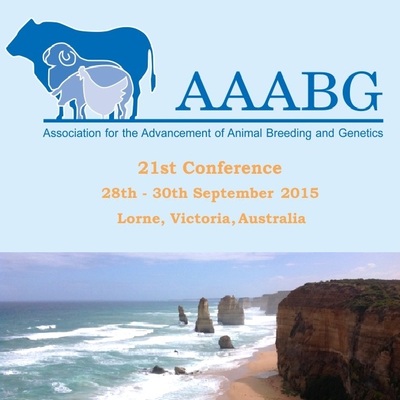Detecting variants associated with complex traits through changing gene expression in cattle (#90)
Mutations can affect phenotypes by changing the amino acid sequence in a protein or by changing the expression of a gene. The gene expression in a particular tissue can be measured using mRNA sequencing and counting the number of mRNA copies of the gene. The aim of our research was to find mutations which affect expression of genes in cis. We detected the mutations that are associated with the expression of each gene in muscle (45 Angus bulls) and liver (38 Angus bulls) by correlating the mRNA count with the alleles carried at single nucleotide polymorphisms (SNPs) within 50kb of the genes that were tested. Furthermore, the SNPs and genes with at least one SNP significantly associated with one or more traits (p<0.001) were found by genome-wide association studies (GWAS) in a beef cattle dataset including 6,114 genotyped animals with 20 traits recorded. We compared the results to find the SNPs significantly associated with gene expression (p<0.001) and also with the variation in phenotype. The SNPs which were significantly associated with gene expression (p<0.001), were more likely to be significant in GWAS for concentration of Insulin like growth factor1(IGF-1), residual feed intake (RFI) and in a multi-trait significance test.
 AAABG 2015*
AAABG 2015* 